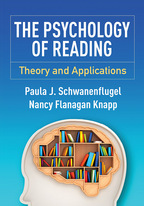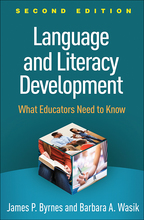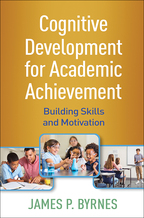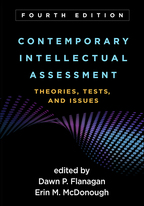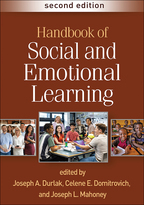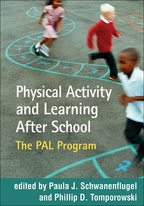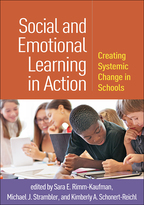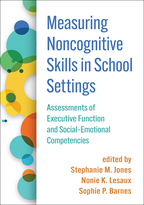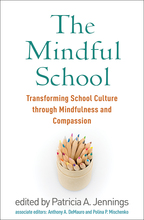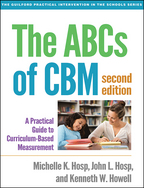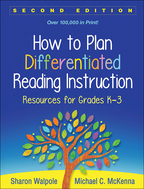The Psychology of Reading
Theory and Applications
Paula J. Schwanenflugel and Nancy Flanagan Knapp
HardcoverPaperbacke-bookprint + e-book
Hardcover
orderNovember 11, 2015
ISBN 9781462523511
Price: $81.00 360 Pages
Size: 7" x 10"
Paperback
orderNovember 12, 2015
ISBN 9781462523504
Price: $54.00360 Pages
Size: 7" x 10"
“The Psychology of Reading: Theory and Applications…addresses the interests of both psychologists and educators. It discusses, in an admirably impartial manner, the research conducted by cognitive psychologists into the reading process along with some of the theoretical models such research has stimulated….The book is organized developmentally….The writing style is straightforward and clear. The chapters begin with case studies that serve as advanced organizers by highlighting the issues discussed in the chapter in a vivid manner….The book would be useful as a textbook in classes in reading, language development, and educational psychology. At the same time, psychologists wishing to brush up on current research on reading would benefit from the authors’ fair, research-based approach to issues.”

—PsycCRITIQUES
“I highly recommend this book. It provides an up-to-date perspective on the field, with an effective blend of theory, research, and instructional implications. The developmental focus is a particular strength and makes the book stand apart. Professionals will appreciate the depth of scholarship, and students will appreciate the nontechnical presentation of research findings. The case studies and discussion questions enhance the text's value for courses in psychology and education. I plan to use it in my own courses at both the undergraduate and graduate levels.”

—Linda Baker, PhD, Department of Psychology, University of Maryland, Baltimore County
“This book excels at presenting a thoughtful and accessible accounting of the state of affairs in reading development. The authors blend two traditionally separate fields of inquiry—research on reading processes and classroom literacy instruction—in a novel way, advancing our understanding in both areas. This important resource will find an eager audience of graduate-level instructors and students, as well as researchers and practitioners interested in learning more about each other’s domains of expertise while garnering a deeper understanding of the psychology of reading.”

—David Therriault, PhD, School of Human Development and Organizational Studies, University of Florida
“I love this book. It provides a thorough overview of all the most important work to date on the psychology of reading. Well organized and easy to read, this is a wonderful text for courses in the psychology of reading or for teacher education reading development courses. Students will benefit from the clear and concise summary of research and the links to classroom practice.”

—Susan Parault Dowds, PhD, Department of Community Psychology, Counseling, and Family Therapy, St. Cloud State University, Minnesota
—PsycCRITIQUES
“I highly recommend this book. It provides an up-to-date perspective on the field, with an effective blend of theory, research, and instructional implications. The developmental focus is a particular strength and makes the book stand apart. Professionals will appreciate the depth of scholarship, and students will appreciate the nontechnical presentation of research findings. The case studies and discussion questions enhance the text's value for courses in psychology and education. I plan to use it in my own courses at both the undergraduate and graduate levels.”
—Linda Baker, PhD, Department of Psychology, University of Maryland, Baltimore County
“This book excels at presenting a thoughtful and accessible accounting of the state of affairs in reading development. The authors blend two traditionally separate fields of inquiry—research on reading processes and classroom literacy instruction—in a novel way, advancing our understanding in both areas. This important resource will find an eager audience of graduate-level instructors and students, as well as researchers and practitioners interested in learning more about each other’s domains of expertise while garnering a deeper understanding of the psychology of reading.”
—David Therriault, PhD, School of Human Development and Organizational Studies, University of Florida
“I love this book. It provides a thorough overview of all the most important work to date on the psychology of reading. Well organized and easy to read, this is a wonderful text for courses in the psychology of reading or for teacher education reading development courses. Students will benefit from the clear and concise summary of research and the links to classroom practice.”
—Susan Parault Dowds, PhD, Department of Community Psychology, Counseling, and Family Therapy, St. Cloud State University, Minnesota

